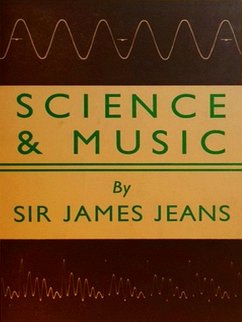As the author mentions in the Preface, the intent of the book is to explain in a non-technical manner the main outlines of parts of science specially related to the questions and problems of music, assuming no previous knowledge either of science or of mathematics on the part of the reader. Sir James Jeans, who was a noted British scientist, gave a physical analysis of musical sounds, in what is considered to be the best exposition on the subject, a book of great intellectual stature. His aim was to convey precise information, in a simple non-technical way, that will be of interest to the amateur as well as the serious student of music. The discussion begins with an explanation of the development of the human faculty of hearing. For example, why do some sounds produce pleasure when they reach our ears and some pain? How do we retain the pleasurable quality, as it passes on from one stage of electronic equipment to another? These and other pertinent questions on the transmission and reproduction of sound are answered. The various methods of producing sound, and the qualities of the sounds produced, are further discussed as they relate to vibrations of strings and harmonics, and vibrations of air. Harmony and discord are also considered. In the final chapters on the concert room and hearing, the discussion focuses on the transmission of sound from its source to the eardrum and from the eardrum to the brain. A general theory of acoustics is also covered as well as acoustical analyses. "e;Science and Music is a rare book, as an author does not often combine very distinguished scientific abilities with musical knowledge and power of simple exposition. It will probably become a minor classic."e; - Manchester Guardian.
Dieser Download kann aus rechtlichen Gründen nur mit Rechnungsadresse in A, B, BG, CY, CZ, D, DK, EW, E, FIN, F, GR, HR, H, IRL, I, LT, L, LR, M, NL, PL, P, R, S, SLO, SK ausgeliefert werden.









